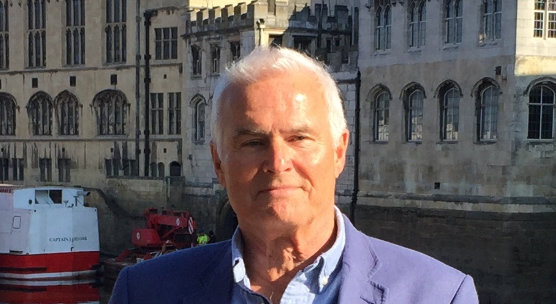Consultants critical of NHS managerialism and bureaucracy in new report
Published On Wed 3 Jun 2015 by Grant Hill

The commitment of senior doctors working in NHS Scotland enables a healthcare system under severe strain to fulfil its necessary obligations to patients, according to new research carried out by the Universities of Dundee and Glasgow.
The BMA Scottish Consultants Committee commissioned this research to determine the extent to which consultants felt their traditional authority and leadership role in clinical matters had been eroded, otherwise known as de-professionalisation. They also wanted to understand the implications of this process for patient care.
The research team found that many consultants experienced significant feelings of de-professionalisation. In turn, this development resulted in a dearth of trust in non-clinical and medical management, feelings that their voice was not being heard or acted on, and that they were not being involved in decision making that had a direct effect on patient care. Consultants also stressed that these deficits in their working lives were likely to have significant consequences for the sustainability of NHS Scotland.
The most important reasons for de-professionalisation were consultants' perceptions of increased managerialism and bureaucracy, increased internal regulation by medical bodies, such as the General Medical Council, variable implementation of their employment contract, and the introduction of new layers of senior medical management.
The University of Dundee’s Graeme Martin, lead author of the report, said, “The consultants we spoke to complained that pressures in the system were causing significant problems for patient care. We also found evidence of strong dissatisfaction with the impact of non-clinical managers and bureaucracy in clinical matters.
“However, consultants continued to play a vital role in holding together a healthcare system ‘caught between a rock and a hardplace’. On the one hand, the NHS is challenged by the demands of an ageing population and ever-increasing expectations among patients and politicians. On the other, it suffers from significant resource constraints. As researchers, we could not be other than impressed with the levels of engagement interviewees expressed about their jobs and clinical team colleagues.
“Nevertheless, we also detected a strong note of pessimism – indeed, sometimes fatalism – over how the healthcare system could be improved for the benefit of all stakeholders.”
Professor Martin carried out the research with his collaborators, Dr Sabina Siebert (Glasgow) and Dr Brian Howieson and Dr Stacey Bushfield (both Dundee).
He continued, “Whereas the NHS was once governed by medical professionals, who saw themselves as guardians of patient care, they now feel that the balance has tipped too far towards professional managers and politicians, who govern the service according to business and political logics.
“For example, the stringent application of waiting-time targets was frequently cited as evidence of the inappropriate reduction of consultants’ discretion over who should be treated and when. Furthermore, as a result of the increasing demands placed on many consultants, their trust in the NHS as an employer has diminished rapidly. For this reason, you might expect their levels of engagement with their work also to be low but our data showed the opposite – their commitment to patients and clinical colleagues was remarkably high.”
The mixed-methods research project began with in-depth interviews with consultants from various specialties, types of hospitals and regions in Scotland. The researchers followed up these interviews with an extensive survey, which received over a thousand replies. In addition to the 1500 pages of interview transcriptions, the survey also produced over four hundred, often lengthy, free-text comments, showing the extent to which consultants wished to make their voice known.
The Scottish Consultants Committee of the BMA has responded by announcing that their first action in the light of this in-depth analysis would be to seek to reinvigorate effective medical advisory structures, so that front-line consultants are able to speak out on behalf of patients and services, to be heard, and to influence change and improvement. They will seek the support of both government and employers in this, as continuing consultant commitment and engagement has profound implications for the sustainability of the health service in Scotland. This process begins with a presentation made by the research team in the Scottish Parliament on June 3rd.
The report found that consultants:
• increasingly saw decision-making ruled by financial, bureaucratic and managerial logics.
• experienced considerable feelings of de-professionalisation, resulting from unnecessary bureaucracy, managerial control, political control, incipient self-regulation and symbolic attacks on their status.
• experienced high levels of trust in doctors and medical judgement from patients.
• felt they were not listened to and were not sufficiently involved in decision-making, both of which were detrimental to patient care and to the sustainability of a world-class health service.
• expressed high levels of engagement with their jobs, their colleagues and the values of the NHS, although many of them were critical of the management of the healthcare system in negatively impacting on their working lives.
Consultants’ views and opinions often varied, however, according to whether they had worked in medical management, their career stage and the specialty in which they worked.
These findings resonate with the recent European Commission study, which showed that the UK ranks only 24th out of 27 European countries in the number of doctors employed per 1,000 people.
Dr Nikki Thompson, Chair of the SCC, said, “This research shows that while consultants are overwhelmingly committed to the NHS and to our patients, there is a sense of hopelessness over how we can speak out and be heard on their behalf.
“It demonstrates the over-riding sense of frustration amongst consultants at the focus on political or financial priorities in the decision making process. It is so important that the health service respects and responds to medical professional judgement, so that as consultants we are able to steer and develop the services we provide to meet the clinical needs of our patients.”
For media enquiries contact:
Grant Hill
Press Officer
University of Dundee
Nethergate, Dundee, DD1 4HN
TEL: 01382 384768
E-MAIL: g.hill@dundee.ac.uk
MOBILE: 07854 953277